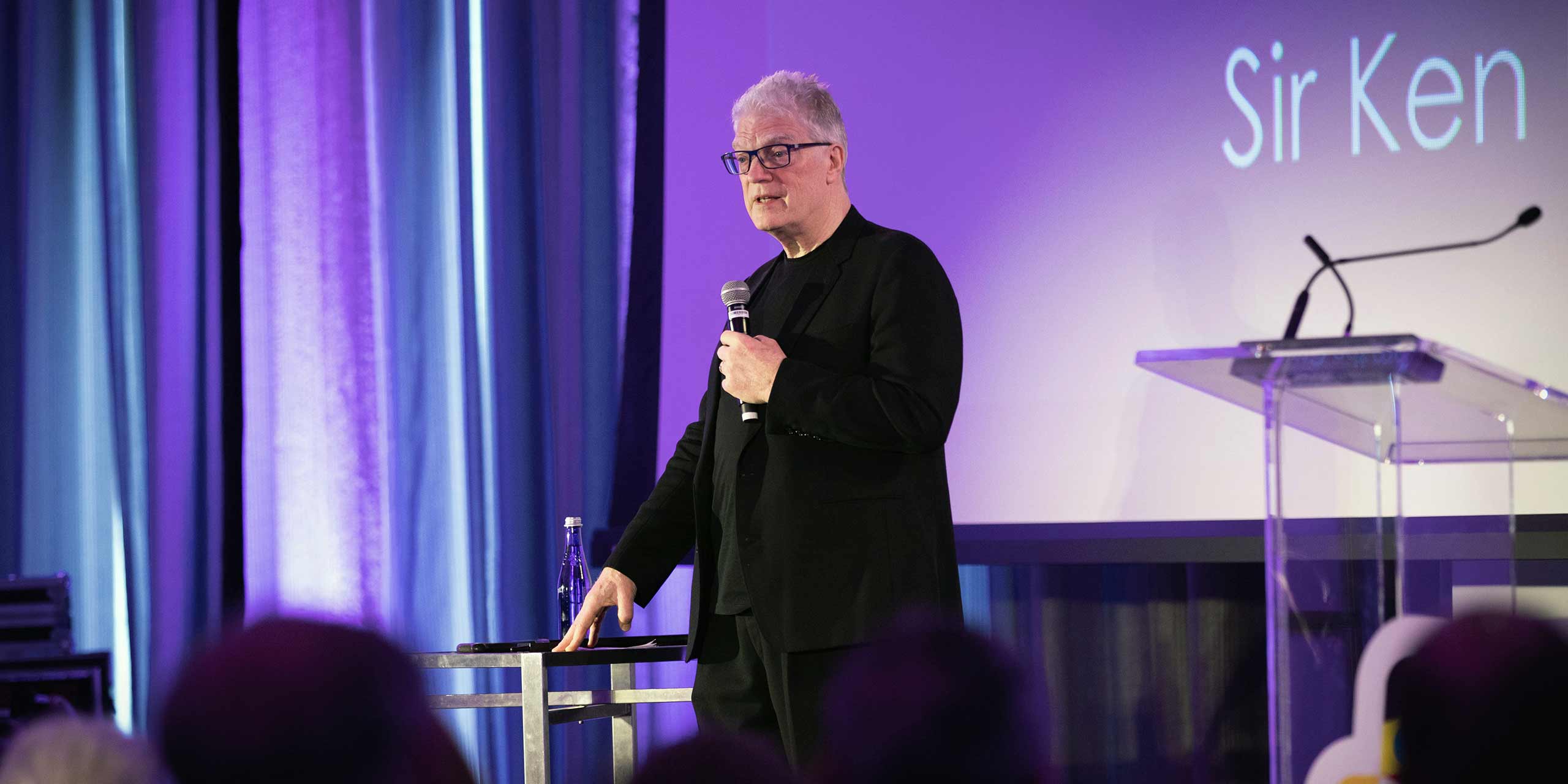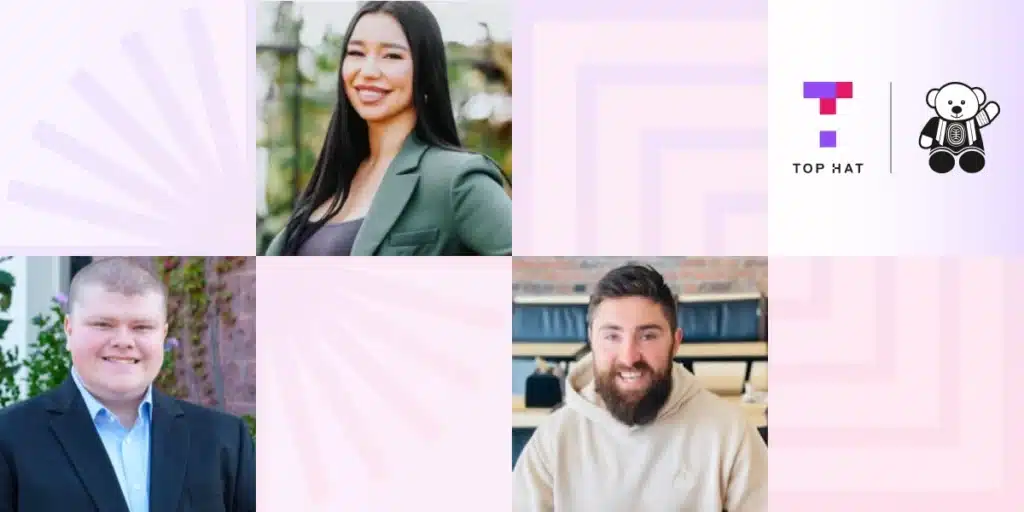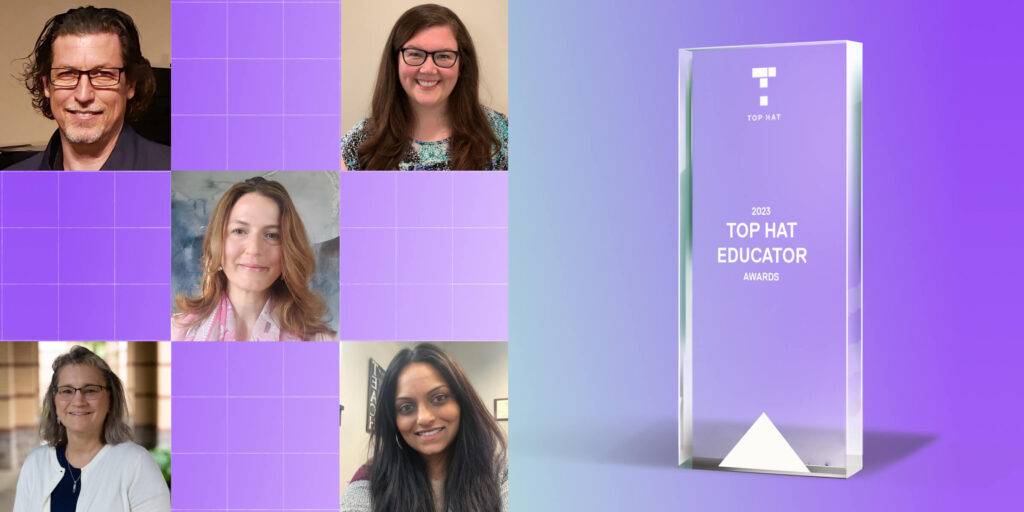In a highly memorable and humorous talk at Engage 2018, Top Hat’s conference for innovative higher educators, international education expert and TED talk alumnus Sir Ken Robinson spoke about the radical changes needed in education to help the next generation thrive.
There are forthcoming challenges in the 21st-century—climate change, ethics around artificial intelligence, and more—and people need to be working closely in communities, using their full set of talents, in order to solve them. Thus, the higher education instructors of today play a key role in shaping the future.
“People are largely unaware of what they are capable of and what their potential is,” said Sir Ken, explaining that the jury was no longer out on nature vs. nurture—nurture has clearly won out, and a person’s capability can be correlated to what they’re exposed to.
Sir Ken reminding us that education is fundamentally about human flourishing #Engage2018 @tophat pic.twitter.com/8TUsxhU8rz
— Mike Di Gregorio (@mike_digs) October 27, 2018
One important moment in Sir Ken’s talk was the reminder above—why do we educate? There are four reasons, he explained:
- Social: Education should enable young people to become active and compassionate citizens.
- Personal: Education should enable young people to engage with the world within them, as well as the world around them.
- Economic: Education should enable students to become economically responsible and independent.
- Cultural: Education should enable students to understand and appreciate their own cultures, and to respect the diversity of others.
Subscribe to Top Hat’s weekly blog recap
Get the best posts of the week delivered to your inbox:
A K-12 educational system that is narrowly focused on preparing students for higher education — and is driven by tests – cannot succeed at any of these, cannot develop diverse groups of people into engaged, successful citizens, and cannot develop people’s natural talents. Likewise, a social media landscape tends to be isolating, and leads to false communities where people don’t make meaningful connections.
Human beings are unique, rare and it’s incredibly unlikely we’re here at all, he explains. We’re also innately curious. To be successful, education should take advantage of all of this.
https://twitter.com/ABrenneise/status/1056245879231967232
@SirKenRobinson @tophat Inspiring keynote talk by Sir Ken Robinson. Can we replace the test-based driven teaching culture with a new #education system that fosters creative, engaging, personalized #learning for #students? Tweet your thoughts here. #engage2018 pic.twitter.com/j0nBI55mN9
— Kee Chan, PhD, MBA (@keechanphd) October 27, 2018
One way forward, according to Sir Ken Robinson, is to rebuild the traditional concept of education into something more approaching a conversation—after all, nobody can really agree on what education exactly is, anyway. “The great teachers have always been great students. Great students are great teachers,” he explained. “It’s what the flipped classroom is about. It’s what is meant by the agile classroom. It’s one in which there is energy, agility, and vitality, where it’s a community of learners being facilitated by an expert teacher. But it’s not a passive group of learners listening to a teacher at the front discharging what they happen to know.”
Human intelligence isn’t marked by conformity naturally. It’s characterized by diversity.
In a Q&A after the keynote, Sir Ken spoke about what the future holds for humanity—but also offered a powerful invocation that it’s up to the rank and file who do the work in the classroom, rather than organizers or policy-makers, to change attitudes.
Citing the example of popular movements towards same-sex marriage and non-smoking in Ireland, until recently a country seen as resistant to change, he said that movement in society comes from the bottom, not the top.
“I’d never underestimate the power of organized, vital energetic movement where people are actually doing the work. It’s pointless waiting for a politician to be elected who you think is going to solve this problem, particularly in education, where there are so many smart people.”
Watch an excerpt of Sir Ken Robinson’s Engage talk here.


